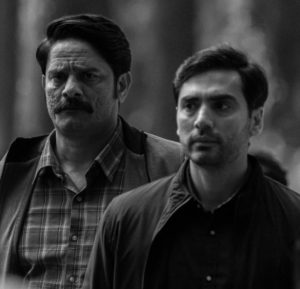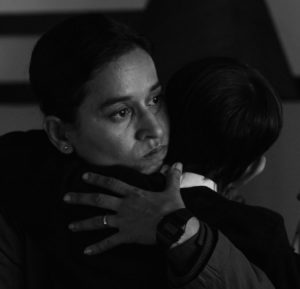 The Hindi entertainment industry’s focus on the North East is not new, often driven by inclusivity. Yet, it rarely portrays the region authentically. Sudip Sharma’s Paatal Lok Season 2, however, gets it right. Without caricaturisation or forced exposition, the series explores Nagaland’s gritty underbelly with remarkable nuance.
The Hindi entertainment industry’s focus on the North East is not new, often driven by inclusivity. Yet, it rarely portrays the region authentically. Sudip Sharma’s Paatal Lok Season 2, however, gets it right. Without caricaturisation or forced exposition, the series explores Nagaland’s gritty underbelly with remarkable nuance.
Sharma cements his status as a formidable showrunner, delivering a deeper, more introspective take on violence, identity, and consequence. While Season 1 examined caste and religious fault lines, Season 2 focuses on power, insurgency, and generational trauma. The show expands beyond Delhi to Nagaland. The inclusion of Nagamese instead of accented Hindi is a revolutionary move, refusing to cater to Bollywood’s tendency to homogenise cultures.
Slow-burning anatomy of violence
 Violence in Paatal Lok 2 is not an aesthetic choice, rather an academic subject. From political assassinations to aggression in every character, Sharma interrogates its origins, functions, and consequences. A telling dialogue—“You only kill when you are left with no option”—sets the tone. Sharma does not just depict violence; he probes its necessity and inescapability.
Violence in Paatal Lok 2 is not an aesthetic choice, rather an academic subject. From political assassinations to aggression in every character, Sharma interrogates its origins, functions, and consequences. A telling dialogue—“You only kill when you are left with no option”—sets the tone. Sharma does not just depict violence; he probes its necessity and inescapability.
Hathi Ram’s journey
Jaideep Ahlawat’s Hathi Ram Chaudhary remains the show’s backbone. Once battling Delhi’s systemic corruption, he now faces an unfamiliar world where his North Indian, Hindi-speaking privilege holds no weight. His brute intimidation tactics fail, and he must navigate power dynamics like he never had.
His former junior, Imran Ansari (Ishwak Singh), now an IPS officer, subtly shifts their dynamic. With Ansari in charge, Hathi Ram is an outsider, both literally and figuratively.
A rich tapestry of characters
 One of Paatal Lok’s greatest strengths is its ability to flesh out every character, no matter how minor. The show refuses to reduce side characters to mere plot devices, instead giving each of them histories, motivations, and moral ambiguities.
One of Paatal Lok’s greatest strengths is its ability to flesh out every character, no matter how minor. The show refuses to reduce side characters to mere plot devices, instead giving each of them histories, motivations, and moral ambiguities.
Daniel (Prashant Tamang), a sniper assassin, delivers a powerful performance with an amusing backstory. He embodies the weight of inherited violence, losing his family to political turmoil. He carries an unpayable debt to Uncle Ken (Jahnu Barua), a former rebel leader who has turned survival into an art form.
Reuben (LC Sekhose), is an insurgent leader, who can’t escape his father’s shadow. His aggression is not born of personal vengeance, but an unshakable responsibility to his land and people.
Rose (Merenla Imsong) is an absent yet omnipresent character whose life forces us to re-evaluate our biases. Her trauma is not neatly explained or justified; it is simply hers to carry.
Meghna Barua (Tillotama Shome), an Assamese officer in Nagaland, must constantly fight for recognition in a male-dominated field that sees her as neither an insider nor an outsider.
This season’s female characters, in particular, carry an emotional depth that enriches the narrative. Asenla (Rozelle Mero) and Esther (Mengu Suokhrie) struggle to reconcile their roles as mothers, daughters, and survivors, while Grace (Theyie Keditsu) endures not through confrontation but through quiet defiance.
Subverting the police procedural formula
 Unlike typical police procedurals, which use side characters as plot devices, Paatal Lok 2 fleshes out every individual. Violence is not a series of isolated acts but a generational force shaping identities, politics, and relationships.
Unlike typical police procedurals, which use side characters as plot devices, Paatal Lok 2 fleshes out every individual. Violence is not a series of isolated acts but a generational force shaping identities, politics, and relationships.
The murder mystery—the assassination of Jonathan Thom (Kaguirong Gonmei), a powerful Naga leader—serves as a catalyst rather than the focal point. As Hathi Ram unravels the case, he realises that the true crime is not one act of violence but the systemic rot enabling it.
The insider-outsider divide
The show examines the Northeast’s complex identity politics. In one striking scene, a Bihari man stuck in Nagaland due to legal entanglements shouts “permit, permit” (for an Inner Line Permit) outside Kohima airport, enforcing a bureaucratic rule in a land that refuses to accept him. A Rajasthani businessman, despite living in Nagaland his whole life, still faces discrimination.
The show refuses to portray Nagas as mere victims of discrimination. Isaac (Bendang Walling) distrusts his senior, SP Meghna Barua, not just because she is a woman but because she is Assamese. The show’s strength lies in its refusal to paint clean moral binaries—only layered, flawed humans navigating history’s burdens.
A patient binge
Paatal Lok 2 does not indulge in spectacle for spectacle’s sake. While action sequences are present, the real drama lies in quiet moments—a father and son failing to communicate, a mother unable to reclaim what was lost, and a cop confronting his own biases in an alien land.
By season’s end, Hathi Ram has solved the case, but victory remains elusive. The cycle of violence persists, reinforcing his haunting declaration, “Main paatal lok ka permanent niwaasi hoon” (I am a permanent resident of the netherworld).
Final verdict
While Season 2 is gripping, it doesn’t quite match the brilliance of the first. Some overdone plot twists and excessive character deaths at times weaken its impact. Hathi Ram’s frequent realisations, though compelling, feel repetitive. However, the series still delivers with its sharp writing, strong performances, and intense pacing.
At eight episodes, each around 45 minutes, it’s a fast-paced, binge-worthy ride that justifies the five-year wait. Most notably, its portrayal of Nagaland is a landmark moment, proving regional stories can be told authentically without catering to stereotypes.
This show is streaming on Prime Video.



